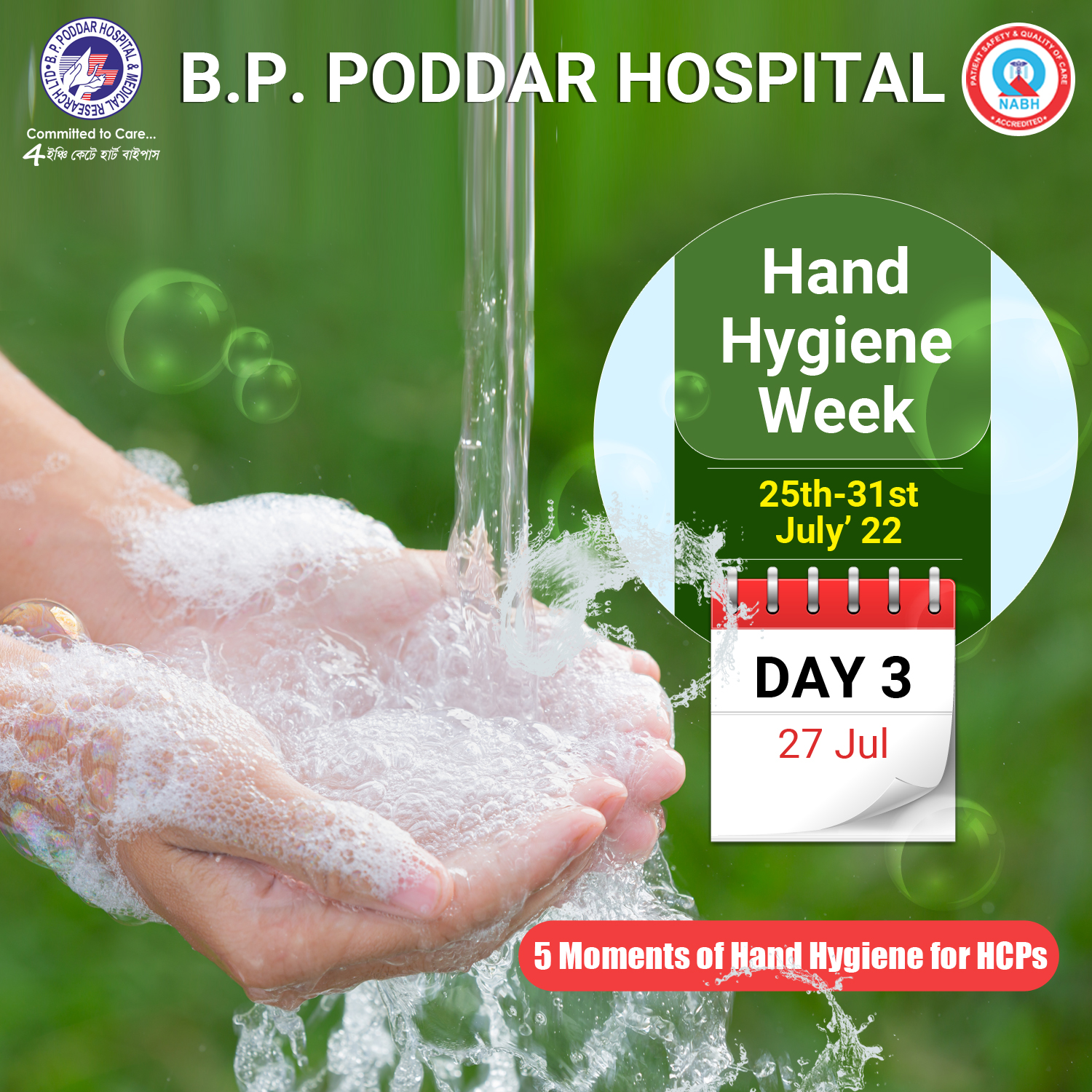- Emergency Admission : +91-8585035846
- Email :feedback@bppoddarhospital.net

In order to keep the facility, patients, visitors, and staff safe, hand washing is the best line of defense against the transmission of disease. As the Healthcare Professionals (HCPs) move through and interact in so many various crucial places around the facility, healthcare staff bears the majority of the duty for maintaining good hand hygiene. Healthcare professionals must execute hand hygiene procedures often during the course of the day for a variety of reasons. It's challenging to remember all the exact situations in which a hand wash is required. The World Health Organization has developed the 5 Moments for Hand Hygiene strategy especially for the Health Care Professionals (HCPs) to reduce the possibility of microbial transmission between a healthcare provider, a patient and the environment.
Below are the 5 Moments of Hand Hygiene which we often come across-
Hand hygiene is required as soon as a healthcare professional enters a patient's room to avoid any infections that might have been transferred from any previous activities. They might come into contact with objects the patient later touches, even if they don't need to touch the patient, still there are chances of infection transmission.
Testing, taking blood, giving someone an IV, getting ready for surgery, etc. all call for an additional hand hygiene event before the task is carried out. Having a top-notch hand hygiene event is essential because patients are currently more vulnerable to hazardous germs.
Healthcare professionals frequently come into touch with bodily fluids from patients, such as blood, saliva, urine, and feces. After this kind of contact, hand washing is necessary to safeguard both the patient and the staff.
After interacting with a patient, the healthcare provider must conduct a hand hygiene procedure. A pathogen that could endanger staff members, guests and other patients might get transmitted to the patient who is receiving treatment and care.
There is a chance of cross-contamination even if the healthcare worker does not physically interact with the patient for any length of time. To protect the health and safety of the rest of the facility, healthcare professionals must always remember to wash their hands after coming into touch with the patients.